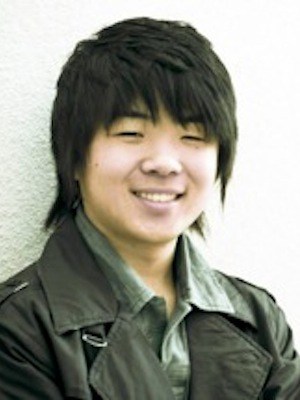We asked the winner of our recent Video Game Music composition contest, Aaron Ishibashi, to talk with us about his musical background, inspirations, and how he came to write such a cool piece talk. Hear his entry, along with the two runners-up, in this edition of Notes.
Noteflight Robin: What was your earliest musical memory?
Aaron: Classical violin and video games are two big childhood memories. My parents started me on the violin at age three and a half, and I continued lessons through high school. I was about four when I remember my dad bringing out Sonic the Hedgehog on the Sega Genesis game system. Pokémon games on the Nintendo Gameboy are probably some of my fondest childhood memories, because my brother, cousins and I would all excitedly huddle together to battle and trade our Pokémon via cable link. I was only allowed to play video games for a couple hours on the weekends after violin practice, so violin practice often felt like the obstacle I had to get through before I could start leveling up my Pikachu. I can still remember many of the violin pieces and game soundtracks I encountered.
So video games have been been a part of your life for a long time… what sparked your interest in writing video game music?
In seventh grade I started using a program called Game Maker. I made cheesy games like Ninja Assault, in which the player is a gem-collecting blob of edamame tofu, fighting his arch nemesis… Sushi. Later, I started looking online for other musical options beyond the temp soundtrack library Game Maker came with. I had played Japanese Role-Playing Games like Fire Emblem, Pokémon, and Golden Sun, so I knew this genre of games had music that I already resonated with. That’s when I found music from Final Fantasy. My formal music training and video games had been mostly separate in my mind, but they suddenly collided. Music theory class, orchestra, and violin lessons became much more meaningful. I was thrilled to use what I was learning to analyze and transcribe the music from these games, like taking apart a cool toy to figure out how it worked.
What have you been writing since then?
In tenth grade, it felt like my composing began to take off. After studying for a year with my composition and violin teacher Michael McLean at the Colburn School of Performing Arts, I wrote a piece for the Colburn String Orchestra that they played on the spring concert. I took a video game music class that summer at Berklee College of Music, and around the same time I was accepted to the Los Angeles Philharmonic Composer Fellowship Program, which led to two of my pieces being performed by the LA Phil in concert. Currently I’m finishing my undergraduate degree in composition at USC and am excited for things to come.
How did you discover Noteflight, and what aspects of Noteflight do you find especially useful?
I found Noteflight through a friend who told me about this competition. I’ve been composing on paper a lot recently, so it was actually a departure from computer notation. But the ability to share scores with friends and others via the internet, and even to those who are not familiar with music notation, is particularly useful, and unique.
You wrote an amazing piece for our contest. How did you go about it?
Thank you! I started by sketching the basic ideas for each section. This musical skeleton outlined the narrative: cold sparseness, heightened nervous tension, direct combat, and resolution. I spent a lot of time fleshing out this skeleton, then connecting the musical “tissue” together. Voice leading and counterpoint (the “horizontal” element of music, how independent musical lines flow together) was a guiding factor. I tried to avoid conventional harmonies, in order to portray the harsh nature of the story, while keeping the music understandable in other ways: forward flow and development in the musical themes, varied combinations of instrumental textures, and a steady bass line to hold it together.
For the ending, I thought there would be a hymn/chorale-like resolution with more straightforward harmonies, but I removed it the day before I submitted it, and changed the ending to echo the beginning. I actually wrote that chorale-like part before the competition and based the musical themes of the piece around it, so it was a hard decision to remove it. But I felt that it didn’t mesh with the intensity of the dissonant fight music, and it just felt right to change it. It’s almost like the piece took on an independent life of its own. That said, I could still imagine the chorale playing at a later point if this music was part of an actual game.
View the score, and watch the video from the recording session:
You can also hear the original ending Aaron wrote before deciding on the current version.
Follow this link to see and hear the excellent scores by the two runners-up.

